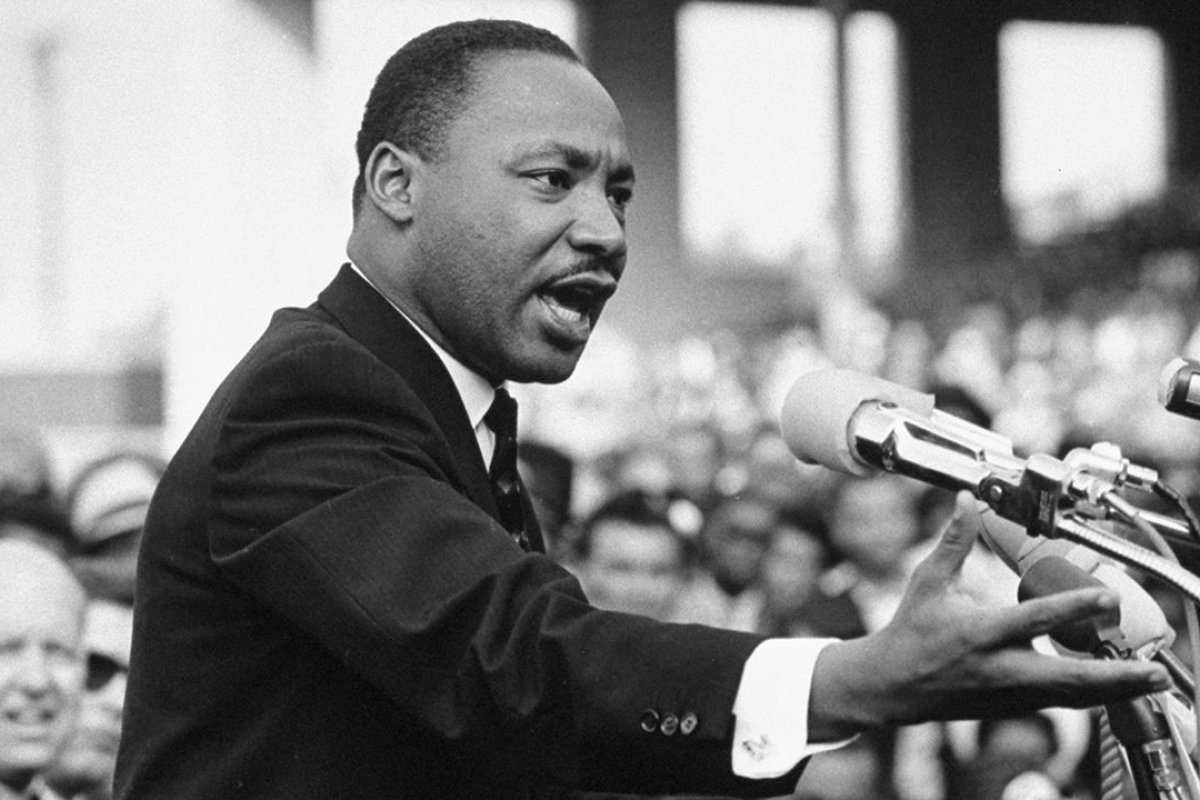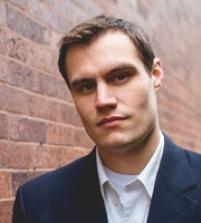
Asking the Right Questions about Riots
Contemplating the questions we should and shouldn't be asking about riots by looking to the example of Martin Luther King Jr.
Ed. Note: This essay is part of a special issue on the George Floyd Protests, which brings together five Divinity School students and recent graduates to comment on the role of religion in the events of the past two weeks, as well as to explore the potential contributions that we in the academic study of religion, in all our various areas of expertise, can make to the broader national conversation that is taking place at this moment. We invite you to read the other contributions to this issue:
- Letter from the Editor
- Foster J. Pinkney, Protest and the Raging Messianic
- John Sianghio, Vandals and the Hands of Christ in the World
- Aneesah Ettress, We Need Art to Help Us Heal, Now More than Ever
- Nathan Hardy, Protests, Looting, and Iconoclasm
In the last week, many have taken to social media to post quotes from Martin Luther King Jr. either in support of riots or in opposition to them. This isn’t unusual—Dr. King’s legacy is often invoked in public moral discourse—but it is ironic. When asked about riots, Dr. King would rarely speak in support or opposition but would redirect the questioners’ attention to the conditions that led people to riot and the message that those rioting hoped to express. The question of supporting riots or condemning riots was for King a red herring, a distraction that draws people’s attention from the ongoing crisis that affects black Americans. It is like hearing a carbon monoxide alarm go off and stopping to argue over whether it’s too loud or not loud enough.
As a scholar of nonviolent direct action, I’ve been asked by several people in recent days about the practicality and morality of looting, property damage, and violent protests. I have a lot of thoughts, but I don’t think it’s worthwhile for me to share them, for three reasons. The first reason is that I’m not convinced the people who are looting and destroying property are the same as the people who are protesting the killing of George Floyd and the system that facilitates and exonerates such killings. The question “is burning down a restaurant a legitimate form of protest?” presupposes that the protesters are the ones burning down the restaurant. So far video evidence seems to suggest that much of the destruction has been caused by agitators not affiliated with the protesting groups—in fact sometimes affiliated with the police—or just opportunists taking advantage of the situation. The question of the merits of violent protest is a legitimate one, but when asked in the midst of ongoing protests it conceals an assumption—that the protesters are the ones causing violence—which I’m hesitant to grant.
The second reason is that the logic of nonviolent direct action is based on the strategy of being as disruptive as possible of unjust systems. Pioneers like Gandhi, King, and Tutu reasoned that in their situations, violent protest would play into the hands of oppressors and the protectors of the inhumane status quo. If there’s one thing order knows how to handle, it’s chaos. If there’s one thing law knows how to handle, it’s lawlessness.
Violence, these leaders reasoned, was less disruptive of the unjust systems than organized, nonviolent protest. Their moral reasoning was less a matter of following norms of civility and more a matter of discerning how to apply the most pressure in precisely the right way to disrupt the customary functioning of the oppressive order. Debates about the ethics of riots tend to misunderstand this; supporters sometimes talk as if all disruption is good disruption, while opponents often fixate on the disruption and ignore the systemic injustice.
Thus, nonviolent direct action is less about ethicists like me knowing the right moral principles and making pronouncements and more about having the familiarity with the systems in place and the creativity to imagine actions that put the pressure in the right places. Scholars can of course be helpful in these endeavors, but few people are helped if I pass judgments from my living room.
The third and most important reason why we should be reluctant to weigh in on the morality and practicality of rioting is precisely Dr. King’s reason. Rather than try to answer this question now, we need to redirect those who ask it to the systems that suppress the voices and bodies of millions of black and brown Americans.
Sightings is edited by Joel Brown, a PhD Candidate in Religions in the Americas at the Divinity School. Sign up here to receive Sightings via email. You can also follow us on Facebook and Twitter. The views and opinions expressed in this article are those of the author and do not necessarily reflect the position of the Marty Center or its editor.


